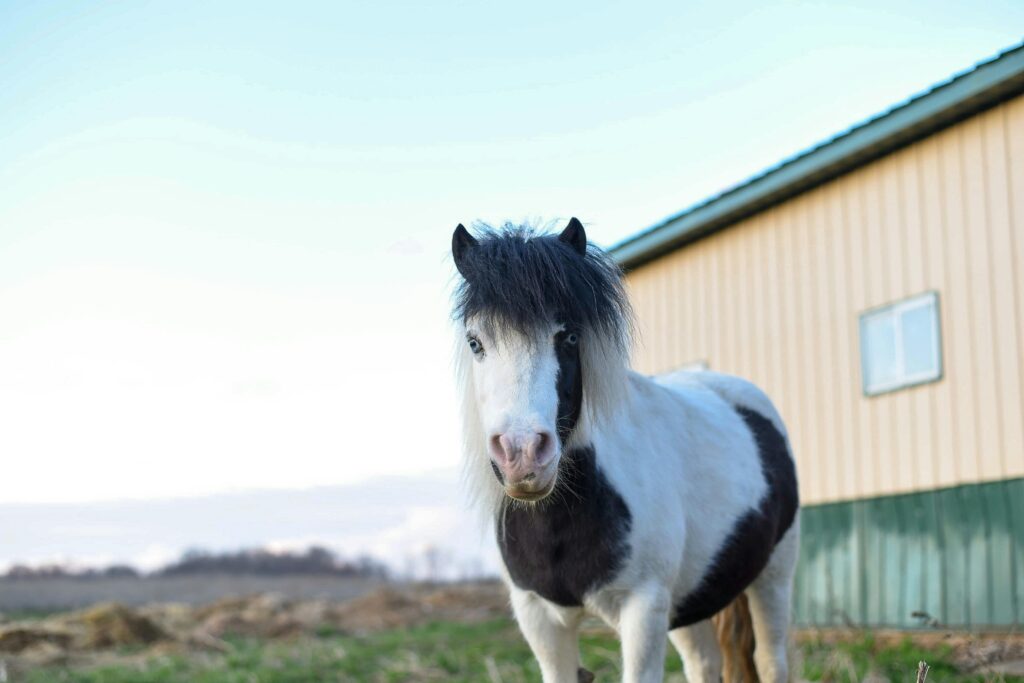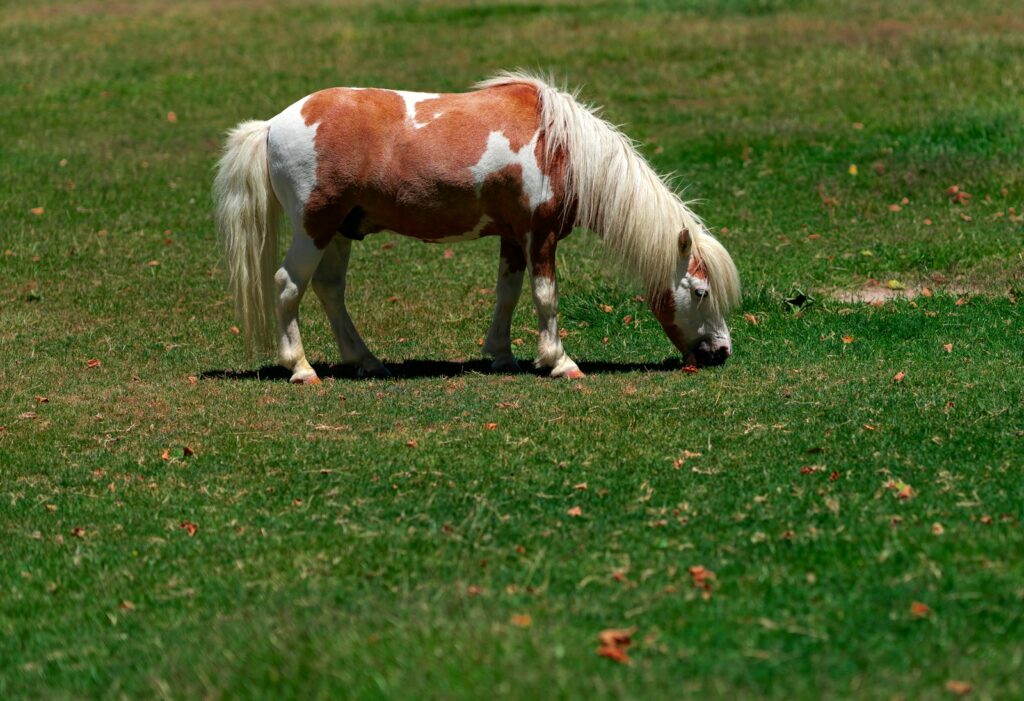
Miniature horses have captured the hearts of animal lovers worldwide, offering a unique blend of companionship akin to traditional pets, coupled with the majestic grace of their larger counterparts. If you’re considering a miniature horse as your next pet, it’s crucial to understand what this commitment entails.
From space requirements to daily care, here are the factors that will ensure your journey with a miniature horse is as rewarding as possible:
- Space And Shelter Needs
Consider the available space you have. Despite their small size, miniature horses, much like Shetland ponies, require ample room to roam and graze.
A well-fenced paddock or pasture is essential, along with a dry, comfortable shelter to protect them from the elements. This setup ensures they have a healthy living environment where they can exercise and rest. Just as Shetland ponies are accustomed to having space to explore, miniature horses also flourish in environments that mimic their natural habitat, allowing them to maintain their physical and mental well-being.
- Training And Exercise

Despite their size, miniature horses are intelligent and benefit from mental stimulation and physical exercise. Training them can be both rewarding and fun, covering everything from basic manners to more advanced tricks. Exercise is equally important, whether it’s through leisurely walks, playtime in the paddock, or even agility courses designed for their size.
- Diet And Nutrition
The dietary requirements of miniature horses are pivotal for their well-being. Despite their small stature, it’s easy to overfeed them, which can lead to obesity and associated health problems like laminitis. Here are some nutrition tips to keep their diet balanced and healthy:
- High-Quality Hay: Forms the basis of their diet. Opt for a mix of grasses to provide a variety of nutrients.
- Limited Grazing: While grazing is natural and beneficial, it’s essential to monitor the amount of fresh grass they consume, especially in the spring and summer months when the risk of overeating is higher.
- Supplements: Depending on the quality of their primary diet, you might need to supplement with vitamins and minerals, especially if the forage quality is low or if they have specific health needs.
- Controlled Portions: Use a weight tape to monitor their size and adjust feed portions accordingly to avoid over or underfeeding.
- Fresh Water: Always ensure they have access to clean, fresh water to aid digestion and overall health.
By adhering to these guidelines, you can maintain your miniature horse’s health, ensuring they remain happy and active companions.
- Health Care And Grooming
Regular vet check-ups form the cornerstone of miniature horse care, ensuring they stay healthy and happy. Here’s a breakdown of essential healthcare and grooming practices:
- Vaccinations and Deworming: Keeping up with vaccinations protects your mini from various diseases, while a regular deworming schedule helps prevent internal parasites that can compromise their health.
- Dental Care: Annual dental check-ups are crucial to prevent overgrown teeth, which can lead to feeding difficulties and discomfort.
- Hoof Care: Regular trimming, every 6 to 8 weeks, prevents hoof issues that could lead to lameness or other mobility problems. It’s a crucial part of their maintenance, given their active lifestyle.
- Grooming: Daily brushing may help keep their coat shiny and healthy. Doing so can also provide an opportunity to check for any skin issues or injuries.
Incorporating these practices into your routine ensures your miniature horse remains in top condition, both physically and emotionally.
- Social Needs
Miniature horses are social creatures that thrive on interaction. If you’re considering a mini, think about adopting two. This ensures they always have companionship, reducing the risk of loneliness and stress. If another horse isn’t an option, regular human interaction and socialization with other animals can help fill this need.
- Legal Considerations
Engaging with your local animal control or planning department can provide a wealth of information and help you avoid potential pitfalls. This engagement is crucial for ensuring that your property is suitable and that you’re adhering to any specific requirements or permits needed for keeping miniature horses. This proactive approach safeguards you legally and ensures a harmonious relationship with your community and peace of mind in your miniature horse ownership journey.
- Financial Commitment
When caring for a miniature horse, you have to remember that it usually involves a significant financial commitment. From the initial purchase to daily care, veterinary bills, and unexpected expenses, the costs can add up. It’s vital to assess your financial situation and ensure you’re ready for this long-term commitment.
Wrapping Up
While the allure of adding a miniature horse to your family is undeniable, it’s accompanied by a set of responsibilities and commitments. From understanding their space and dietary needs to ensuring their health and happiness through proper care and companionship, the journey with a miniature horse is rewarding. By considering these factors, you’re on the path to creating a loving and enriching environment for your new miniature companion.












